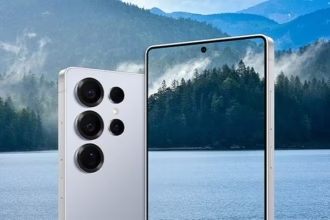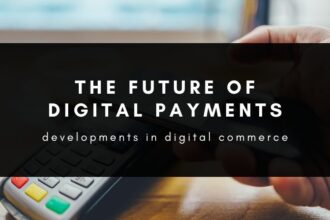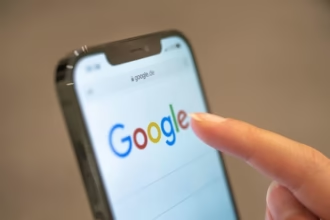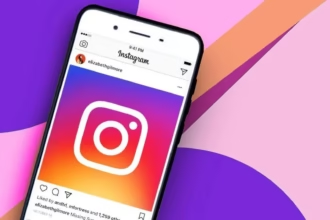African Pop culture is changing fast. From music and fashion to movies and dance, everything is getting a digital upgrade. In 2025, the internet, smartphones, and social media are not just tools, they are the stage. This shift is creating new trends, new stars, and new ways of expressing African identity.
Let’s look at the top digital trends shaping African Pop culture right now.
1. Short Video Apps Are Taking Over
African Pop culture is now closely tied to apps like TikTok, Instagram Reels, and YouTube Shorts. Young people are using these platforms to create content that mixes dance, humor, music, and daily life. Trends start from one video and go viral within hours.
A catchy dance move or funny skit on TikTok can turn an unknown creator into a star. These apps are helping people from rural towns and busy cities alike become voices in African Pop culture.
In 2025, every popular dance challenge or trending sound likely started from someone’s phone. The power of short video is one of the biggest digital trends today.
2. Music Distribution Has Gone Digital
Gone are the days when African artists had to wait for record labels to be discovered. Now, digital platforms like Boomplay, Audiomack, Apple Music, and Spotify are shaping African Pop culture by giving artists control.
With just a good song and some smart promotion, anyone can reach millions. Some songs even go global without ever being played on traditional radio.
Social media challenges, especially on TikTok, now drive music success. This is why artists release songs with catchy hooks that people can dance to or use in short clips.
3. The Rise of Digital Influencers
Influencers are the new celebrities. Many of them are shaping African Pop culture through brand partnerships, viral content, and personal stories. These influencers often speak the language of the street, the village, or the youth, which makes them more relatable than movie stars.
In Nigeria, Kenya, Ghana, and South Africa, we now see influencers setting trends in fashion, music, food, and lifestyle. Some even turn into actors, musicians, or business owners.
Their power comes from trust and authenticity. Followers believe them, not just because of what they say, but because of how they live. Brands now understand that if you want to tap into African Pop culture, influencers are the way in.
4. Fashion Goes Digital
African Pop culture is known for its bright, bold, and meaningful fashion. Now, digital tools are helping designers reach new heights. From Instagram lookbooks to 3D fashion design software, style is going global fast.
Virtual fashion shows, online stores, and augmented reality (AR) try-on tools are helping African designers sell worldwide without stepping outside their country.
Young Africans are also mixing traditional wear with digital aesthetics. TikTok and Instagram show daily fits that reflect heritage, humor, and personal creativity.
5. Nollywood and Afrofuturism in the Streaming Era
Streaming platforms like Netflix, Prime Video, and Showmax are fueling a boom in African Pop culture. They are funding more African stories and showing them to global audiences.
Today’s African movies and shows have better cameras, storytelling, and style. They mix traditional values with modern ideas, like Afrofuturism, sci-fi, and magic realism. These genres are making waves with young viewers who want more than just old-fashioned dramas.
Actors, directors, and scriptwriters are using Instagram and Twitter to connect with fans, tease projects, and promote new releases.
Also Read: Remote Work Opportunities Nigerians Can Apply for in 2025
6. Meme Culture Is Alive and Loud
Memes are not just jokes, they are a key part of African Pop culture. They spread fast, reflect real issues, and speak the language of the people. Whether it’s politics, relationships, sports, or hustle, memes are how many young Africans express feelings.
On platforms like Twitter and Facebook, a single meme can spark a wave of creative remixes. People from all corners of the continent contribute, making it a truly Pan-African form of communication.
In 2025, you don’t need a camera crew or a microphone to make an impact, just a funny idea and the right meme.
7. Podcasts Are the New Radio
While radio still exists, podcasts have become a strong voice in African Pop culture. These audio shows talk about real issues, from mental health to entrepreneurship, from dating to politics.
What makes them different is freedom. Creators don’t need to follow strict rules, so the talk feels more honest. Many young Africans now plug in to podcasts while commuting, cooking, or relaxing.
Platforms like Spotify, Apple Podcasts, and even YouTube have made it easy for anyone to create and share. You can now hear voices from parts of Africa that mainstream media often ignores.
8. AI Tools Are Changing How We Create
Artificial Intelligence (AI) is slowly becoming part of African Pop culture too. From AI-generated beats to automated video editing, creators are using new tools to speed up production and improve quality.
Even artists with low budgets are using AI to generate visuals, write scripts, and enhance music. This is giving rise to more content than ever before, and more unique expressions of African stories.
At the same time, there are debates about how much AI should be used. Many believe that African Pop culture must stay human and rooted in real experiences.
9. Online Communities Drive Movements
Digital communities on WhatsApp, Telegram, Reddit, and Facebook Groups are not just for chatting. They are spaces where fans, creators, and trendsetters gather to share and grow ideas.
From fashion lovers in Lagos to underground music fans in Nairobi, these communities shape what’s cool. Many trends now begin in private groups before going public.
African Pop culture in 2025 is being guided by people talking, sharing, and collaborating online every day.
10. Youth Culture and Internet Slang
Language is evolving fast. African youth now mix English, Pidgin, French, Arabic, and local dialects with internet slang. This blend reflects the real African Pop culture of today.
Slang words like “outside,” “vibes,” “pressure,” and “mad o” can trend in one country today and spread to another tomorrow. It’s digital wildfire.
Music lyrics, memes, and video captions all reflect this digital language. It shows pride, hustle, and humor in equal parts.
Also Read: 10 Online Certifications in Nigeria That Actually Matter
The Future of African Pop Culture Is Digital
African Pop culture is not just alive, it is on fire. What makes it powerful is that it comes from the people. It is local, creative, raw, and bold. In 2025, digital tools have become the fuel for this fire.
Whether it’s music, memes, fashion, or film, technology is helping Africans shape their own stories and show them to the world.
The future belongs to those who can adapt, learn new tools, and stay true to their roots. If you want to be part of African Pop culture today, you don’t need permission, just a phone, a story, and the courage to share.






